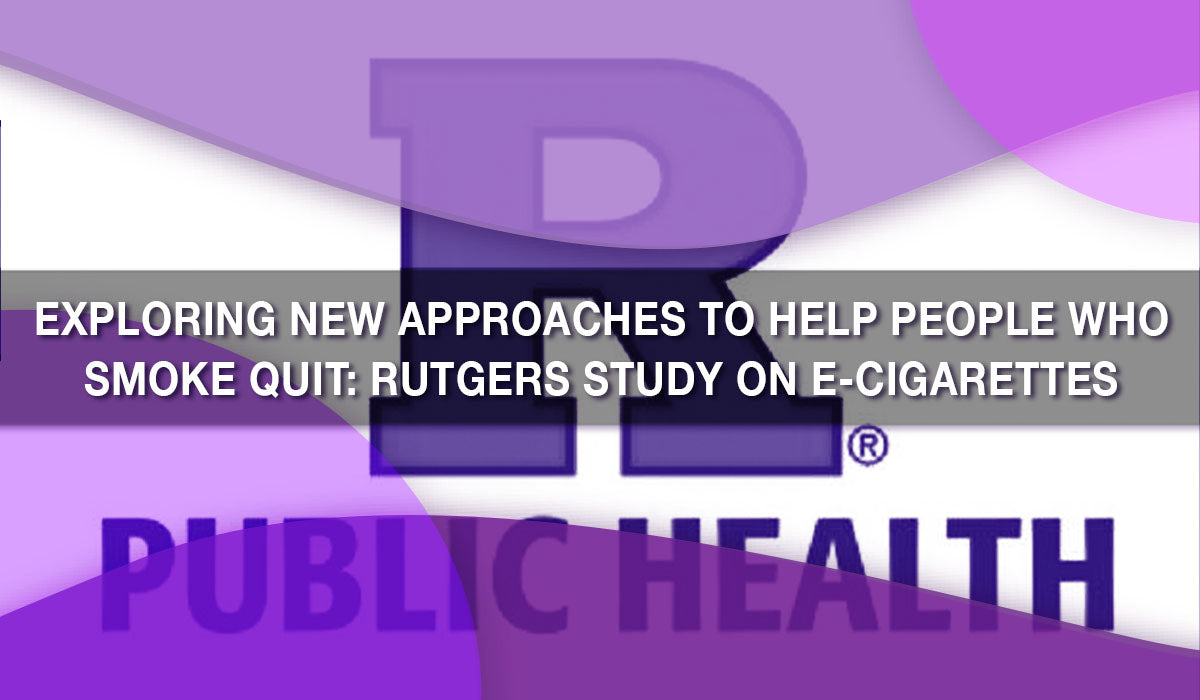
Exploring New Approaches to Help People Who Smoke Quit: Rutgers Study on E-Cigarettes
Quitting smoking is notoriously difficult, with less than 10% of adults who attempt it each year managing to succeed. To address this challenge, Rutgers Health researchers are embarking on a new study aimed at understanding why more adults don’t switch to e-cigarettes, a less harmful alternative to traditional cigarettes.
The study, led by postdoctoral fellow Caitlin Victoria Weiger at the Institute for Nicotine & Tobacco Studies, seeks to explore how better communication of health-related information could improve the odds of quitting smoking.
The two-year study, made possible by a $171,742 grant from the National Institute on Drug Abuse, will run through June 2026. The research will delve into why misconceptions about e-cigarettes persist, and how to correct them in order to help people who smoke make more informed decisions about their health.
Understanding the Role of E-Cigarettes
“We’re not suggesting that e-cigarettes are safe,” said Weiger, “but they are less harmful than regular combustible cigarettes you would light with a lighter if adults who smoke cigarettes switch completely to them. So, they can improve health by being used as an alternative for adults who want to quit smoking but haven’t been able to, or want to continue using nicotine with fewer health risks.”
Despite their potential to reduce harm, e-cigarettes face significant skepticism. Between two-thirds and three-quarters of people believe that e-cigarettes are as dangerous, or even more dangerous, than traditional cigarettes. This misinformation could be preventing smokers from considering e-cigarettes as a viable tool in their efforts to quit.
The Focus of the Study
Weiger’s team aims to identify ways to correct these misconceptions through the use of targeted messaging. The study will gather data through a nationwide survey of adults aged 21 and older who smoke at least five cigarettes a day. The objectives include:
- Identifying clusters of beliefs (belief classes) about cigarettes and e-cigarettes to understand the underlying perceptions that shape behavior.
- Developing and pilot-testing targeted messages aimed at correcting prevalent misconceptions about e-cigarettes.
- Testing the impact of these messages on beliefs, intentions to switch, and actual use of e-cigarettes as a smoking cessation tool.
Weiger acknowledges that the emotional and psychological attachment to cigarettes is a significant barrier. "In addition to nicotine addiction, some people have a strong, emotional attachment to cigarettes, which can be a barrier to switching. It’s all very complicated."
Changing the Narrative
E-cigarettes are often vilified in public discourse, leading many to reject them outright. "E-cigarettes have a very bad reputation, and that’s problematic,” said Weiger. “I simply want people to understand that the combustion that occurs when you light a cigarette creates a ton of harmful chemicals that aren’t present in noncombustible e-cigarettes."
The study's success could depend on effectively changing these perceptions. If smokers come to view e-cigarettes as a less harmful alternative, it could significantly impact public health by offering smokers a viable option to reduce their health risks while maintaining their nicotine use.
A Path Forward
The Rutgers study aims to create a pathway for more effective smoking cessation strategies by clarifying the risks and benefits of e-cigarettes. Although e-cigarettes are not without their risks, they are a safer alternative to traditional cigarettes, and better communication of this message could help millions of smokers make more informed choices about their health.
As the study unfolds, it may offer new insights into how to improve quit rates and contribute to ongoing efforts to reduce the health burden caused by smoking.









Leave a comment
This site is protected by hCaptcha and the hCaptcha Privacy Policy and Terms of Service apply.